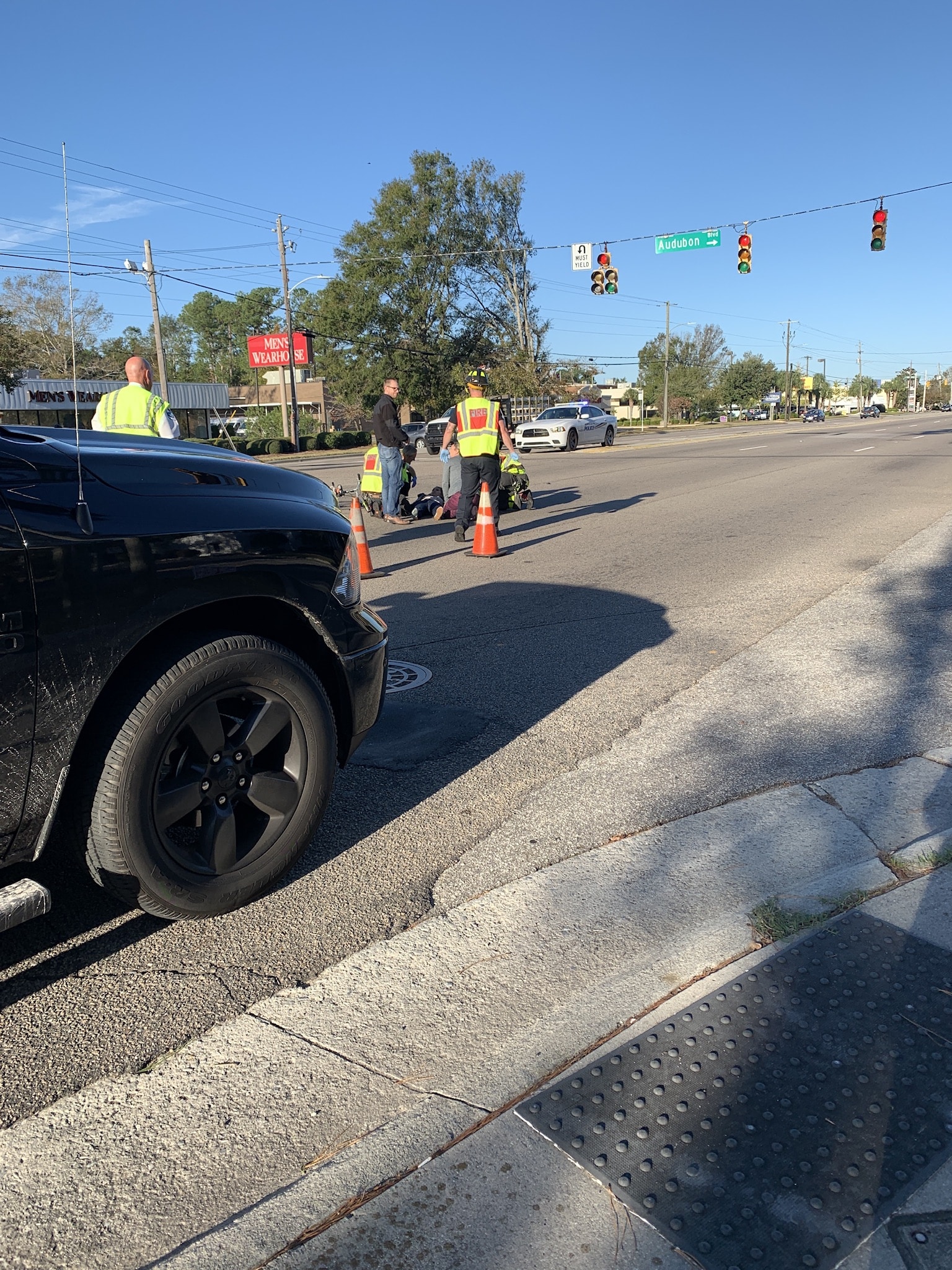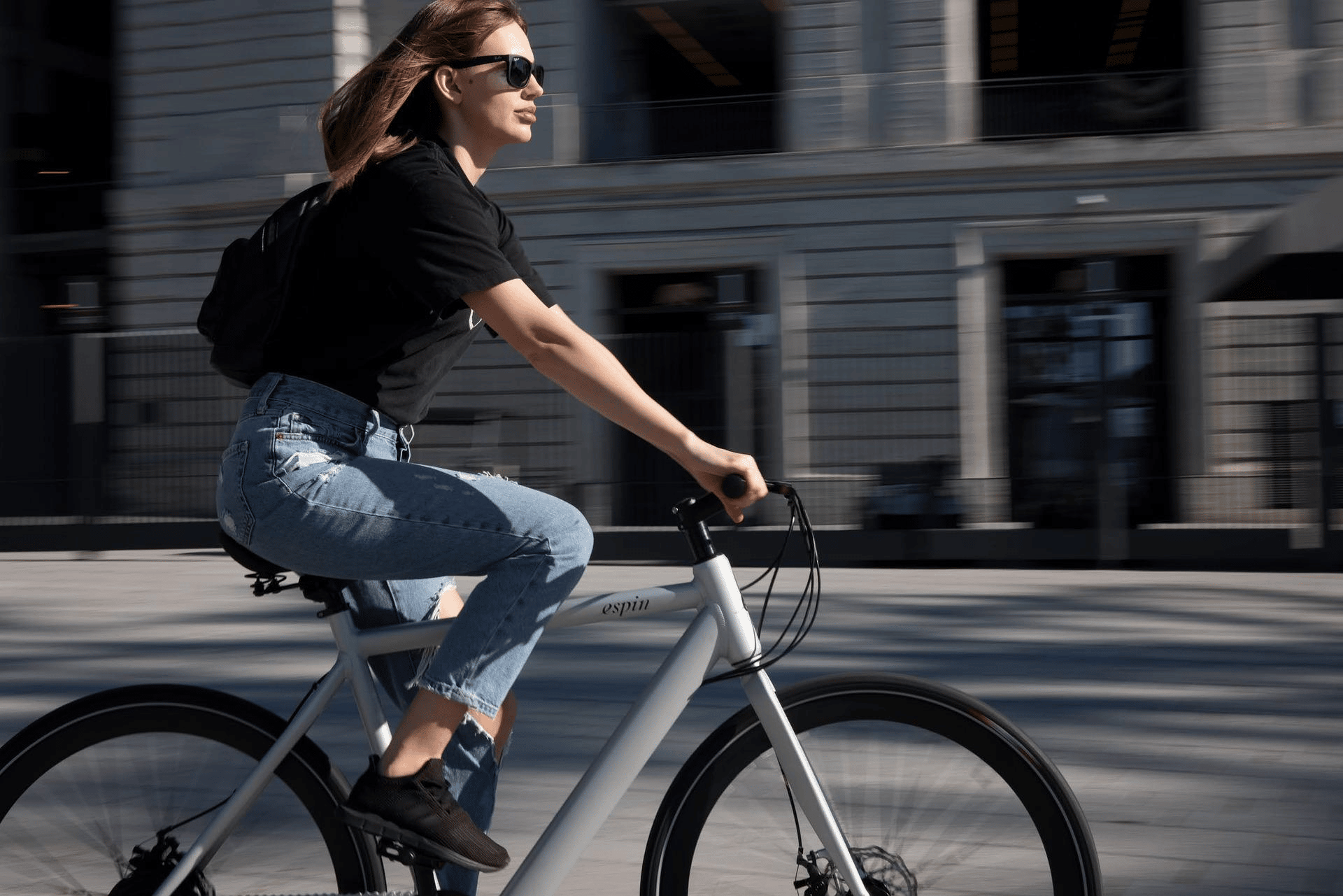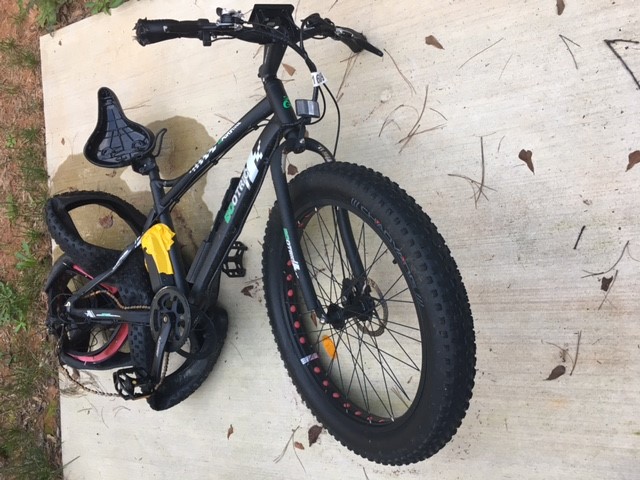Love them or hate them, e-bikes continue to rise in popularity. At the same time, lawmakers struggle to keep up with the developing technologies. Every week I get multiple inquiries from people trying to navigate North Carolina’s e-bike laws. If you’re confused, you’re not alone.
We could easily fill a book with all the latest information and law related to e-bikes, but for now, we focus on the various classifications and how they affect North Carolina e-bike riders.
E-BIKES CLASSIFICATIONS
Federal law and the majority of state laws (not including North Carolina’s) divide e-bikes into three tiers:
Class 1: E-bikes that are pedal-assist only, with no throttle, and have a maximum assisted speed of 20 mph.
Class 2: E-bikes equipped with a throttle-assist motor that can propel the bike to a maximum speed of 20 mph without pedaling.
Class 3: E-bikes that are pedal-assist only, with no throttle, and have a maximum assisted speed of 28 mph.
(see 23 U.S.C. 217(j)(2)(B)).
California was the first state to adopt the three-tiered system in 2015. The Federal Highway Transportation Safety Administration (FHTSA) adopted the definition into its regulations in 2021. Before that, under federal law, “electric bicycle” was defined as “any bicycle or tricycle with a low-powered electric motor weighing under 100 pounds, with a top motor- powered speed not in excess of 20 miles per hour.”
The newer classifications allow more motorized bikes to qualify as e-bikes, but to what end? Many motorized bikes on the road today are ridden as if they are e-bikes but exceed the power or speed limits (or both) of most e-bike definitions.
At the national level, the FHTSA and the Consumer Product Safety Commission (CPSC) are responsible for enforcement of the regulations; but enforcement, if there is any at all, is minimal. This means that some companies are making and selling “e-bikes” that aren’t e-bikes. A bike that isn’t an e-bike is supposed to meet stricter equipment requirements, for example, for lighting and brakes.
WHAT IS AN E-BIKE IN NORTH CAROLINA?
North Carolina wrote its e-bike definition into law in 2016 and does not to use the three-tiered system. Under North Carolina law, “electric assisted bicycle” means:
A bicycle with two or three wheels that is equipped with a seat or saddle for use by the rider, fully operable pedals for human propulsion, and an electric motor of no more than 750 watts, whose maximum speed on a level surface when powered solely by such motor is no greater than 20 miles per hour.
(North Carolina General Statute 20-4.01(7(a)) North Carolina’s definition is narrower than states that use the three-tiered system. The most obvious differences are (1) Class 3 e-bikes would not qualify as e-bikes under the North Carolina law, and (2) under the North Carolina law, it doesn’t matter whether the bike has a throttle.
Bottom line: if a bike used in North Carolina has a motor greater than 750 watts or can go more than 20 mph on motor power alone, then it is not an e-bike. So, then what is it, and what does that mean for the person riding it?
The only possible remaining definitions (also in Section 20-4.01) that might fit are the following:
(27) Passenger Vehicles:
h. Motorcycles. – Vehicles having a saddle for the use of the rider and designed to travel on not more than three wheels in contact with the ground, including autocycles, motor scooters, and motor‑driven bicycles, but excluding…electric assisted bicycles, and mopeds.
i. Motor‑driven bicycle. – A vehicle with two or three wheels, a steering handle, one or two saddle seats, pedals, and a motor that cannot propel the vehicle at a speed greater than 20 miles per hour on a level surface. This term shall not include an electric assisted bicycle as defined in subdivision (7a) of this section.
j. Moped. – A vehicle, other than a motor‑driven bicycle or electric assisted bicycle, that has two or three wheels, no external shifting device, a motor that does not exceed 50 cubic centimeters piston displacement and cannot propel the vehicle at a speed greater than 30 miles per hour on a level surface…
(23) Motor Vehicle. – Every vehicle which is self‑propelled and every vehicle designed to run upon the highways which is pulled by a self‑propelled vehicle. Except as specifically provided otherwise, this term shall not include mopeds or electric assisted bicycles.
What your bike is, if it has a motor, but doesn’t fit the “electric assisted bicycle” definition, depends on the bike’s particular features. If it has no external shifting and doesn’t go over 30 mph, then it’s likely a moped. If it has a motor greater than 750 watts but has external shifting and/or can go over 30 mph, then it’s a “motor driven bicycle” or “motorcycle.” A “motor drive bicycle” is treated the same as a motorcycle.
WHY IT MATTERS
Licensing and insurance: Motorcycle drivers are required to be licensed and insured. If your bike is not an e-bike or moped, then you must be licensed and carry insurance to drive. The bike must also be registered with the North Carolina DMV.
Motor vehicle laws: Some laws under North Carolina’s “Motor Vehicle Safety Act” apply only to motor vehicles. For example, the laws on following too closely and carrying open containers of alcohol apply specifically to motor vehicled drivers (note that impaired driving laws DO apply to all vehicle drivers, including bicyclists; a bicyclist also would be subject to any local laws prohibiting open containers on the streets). Use of shoulders is allowed for bicyclists and e-bike riders, but not for motorcyclists.
Local regulations: Local regulations usually say who can ride where. For example, bicycles are often prohibited on center city sidewalks but are generally allowed on most other sidewalks. Mixed use paths allow pedestrians, bicyclists, and usually electric assisted bicycle riders, but likely don’t allow motor vehicles or mopeds. These narrow paths are usually not designed for pedestrians and slower bicycle riders to mix with higher speed vehicles. Local laws also usually allow only bicyclists and e-bike riders (and maybe mopeds; check your municipality’s codes) to use bike lanes.
Enforcement: Enforcement at the state level is also minimal in most places, meaning that (1) people are riding bikes that are technically motorcycles, but without motorcycle licensing, registration, and insurance, and (2) these amped up bikes are being ridden on paths and trails where they endanger pedestrians and bicycle riders.
Crashes: Although enforcement against non-compliant e-bikes is minimal, you are more likely to face penalties if you’re involved in a crash. For example, if you are unlicensed and driving what is essentially a motorcycle, you may be cited. Also, because of North Carolina’s contributory negligence law, even if the crash is the other person’s fault, riding a non-compliant “e-bike” as an e-bike might mean you won’t be able to collect any damages. For example, if you are riding a motorcycle in a bike lane and are right hooked by a right-turning driver, you may be partly at fault, which would prevent you from recovering anything.
CONCLUSION
Most of the calls I get are from people who are riding “e-bikes” that exceed North Carolina’s e-bike specifications and wondering about their rights and obligations. This post is not intended to give legal advice but to provide a framework for you to determine those obligations for yourself. If your bike exceeds the legal parameters, you have choices: (1) take your chances and continue to ride. We do not recommend this; (2) follow licensing, insurance, and registration laws for motorcycles (or mopeds, depending on your specs); and (3) talk to the manufacturer or shop where you got the bike about how to bring it into compliance. We’re aware that people sometimes rig up an initially compliant bike to have more power; the same choices apply to them, except that they can bring the bike back to compliance on their own.

North Carolina lawyer and Bike Law founder, Ann Groninger, has advocated at the state level on behalf of bicyclists in North Carolina for over 15 years. Ann has offices in Charlotte and Durham and has helped bike accident clients in Asheville, Raleigh, Durham, Greenville, Wilmington, Fayetteville, and throughout the state. Read more about Ann on her bio page.










